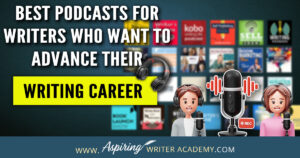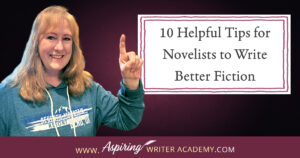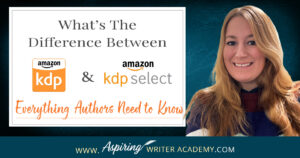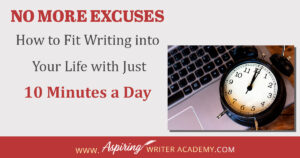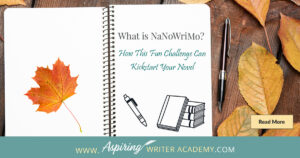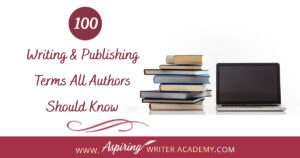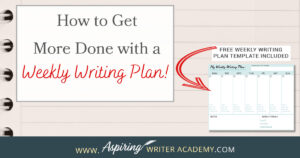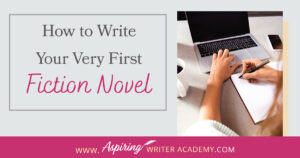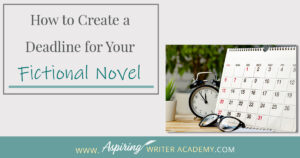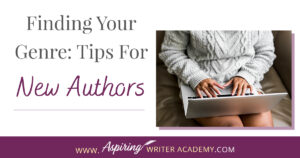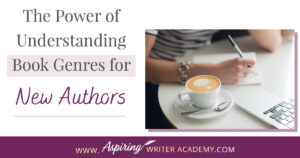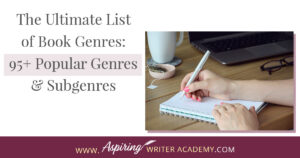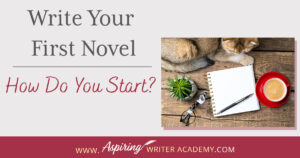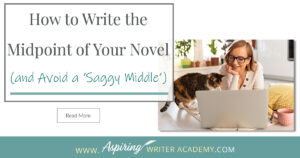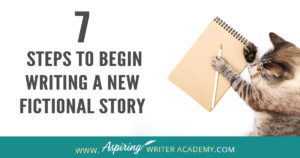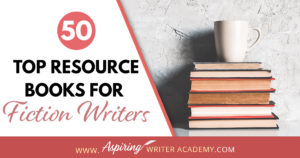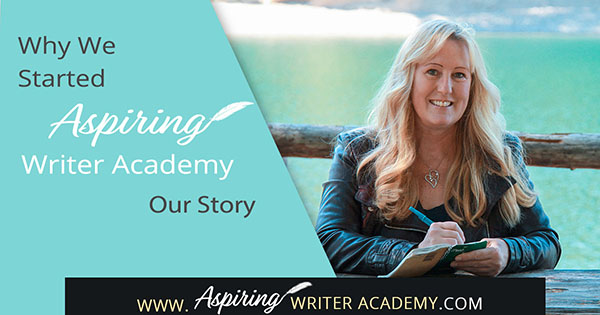Starting your writing journey can feel overwhelming, but you’re in the right place! Whether you're a complete beginner or a seasoned writer looking to refine your craft, the How to Get Started Writing section at Aspiring Writer Academy is here to help launch you in the right direction. Packed with tips and resources, it offers practical advice on brainstorming ideas, structuring your story, and building a routine that keeps you moving toward your writing goals. No matter where you’re starting from, this section will give you the clarity and direction to begin your journey as an author.
Best Podcasts for Writers Who Want To Advance Their Writing Career
Podcasts are one of the best ways writers can learn on the go. In this blog post Best Podcasts for Writers Who Want to Advance Their Writing Career I have collected some of my top podcast recommendations aimed at inspiring, motivating, and helping authors improve their writing, and marketing skills.
The beauty of podcasts is that you can listen to them while driving, doing the laundry, or going on a walk. You can squeeze in learning while you are doing other tasks that you have to do
10 Helpful Tips for Novelists to Write Better Fiction
Are you starting to write your first novel or thinking about publishing one? Our 10 Helpful Tips for Novelists to Write Better Fiction cheat-sheet can help you along the way. With advice on creating scenes, choosing the right words, and managing your time, these tips cover key aspects of writing that will improve your story. Whether you’re new to writing or looking for some fresh ideas, these tips will steer you in the right direction as you work toward your publishing goals!
What’s The Difference Between Amazon KDP And KDP Select? Everything Authors Need to Know
KDP vs. KDP Select—What’s the Difference? 🌟 This detailed guide walks authors through exclusivity rules, marketing tools, and royalty benefits. Make the best choice for your self-publishing career! #AmazonAuthors #KDPTips #IndieWriterCommunity #PublishingTips #BookPromotion
How to Set New Year’s Resolutions for Fiction Writing
After the holiday season, the new year brings a chance for renewal and the opportunity to set new goals. While many of us establish New Year’s resolutions for various aspects of our lives, have you considered crafting resolutions specifically for your writing?
In How to Set New Year’s Resolutions for Fiction Writers, we provide a series of questions designed to help you create a writing plan that aligns with your objectives and keeps you motivated throughout the year.
Slingshot Week: How to Set Goals and Make 2025 Your Best Writing Year Yet
✨ Ready to make 2025 your most productive writing year yet? 🌟 Discover how a ‘Slingshot Week’ can help you reflect, refresh, and set actionable writing goals! Whether you’re a new author or a seasoned pro, this guide will inspire you to dream big and stay on track. 🖊️📖 #WritingGoals #FictionWriting #WritingTips #AuthorsLife #SetGoals #NewAuthors #WritingBooks #WritingJourney #WritingInspiration
No More Excuses: How to Fit Writing into Your Life with Just 10 Minutes a Day
Are you passionate about writing but struggle to find the time to pursue your dream of crafting a fictional novel? Do you feel overwhelmed by your busy schedule, wishing you could incorporate writing into your hectic life?
In our post, No More Excuses: How to Fit Writing into Your Life in Just 10 Minutes a Day, we outline practical strategies to help you write a book and kickstart your author journey—one manageable step at a time.
10 Questions to Consider Before Starting a New Writing Group
Have you ever thought about starting your own writing group? The idea of connecting regularly with fellow writers can be incredibly appealing. Who better to share your writing journey with than those who share your passion? Collaborating with others can also provide valuable opportunities for constructive feedback that can significantly enhance your stories.
To help you get started and avoid potential pitfalls, consider these 10 Questions to Consider Before Starting a New Writing Group.
What is NaNoWriMo? How This Fun Challenge Can Kickstart Your Novel
Curious about NaNoWriMo? Discover how this exciting 30-day writing challenge can help you finally start your novel! Whether you’re an aspiring writer or just looking for a creative boost, NaNoWriMo pushes you to write 50,000 words in November and provides a supportive community to keep you motivated. Learn all the essentials and tips to make the most of this transformative experience. Ready to kickstart your writing journey? Dive into our blog post and find out more!
100 Essential Writing and Publishing Terms All Authors Should Know
Entering the world of writing and publishing can feel overwhelming, especially with all the jargon and industry-specific terms thrown around. Whether you’re just starting your writing journey or looking to expand your knowledge, this comprehensive guide will help you understand the most important terms and abbreviations. Let’s dive into 100 essential terms that every author…
How to Get More Done with a Weekly Writing Plan!
Do you schedule blocks of time to focus on writing your novel each week? Or is writing a hit or miss depending on your personal life? Does having a plan seem too rigid? Are you frustrated because you are not achieving the goals you set out to do weekly, in a month, 90 days, or a year?
In How to Get More Done with a Weekly Writing Plan, we show you how to create a flexible plan to help you write more, track your progress, keep you accountable, and celebrate your success.
How to Write Your Very First Fiction Novel
Have you ever thought of writing a book? Do you need help coming up with a story idea or creating a working outline? How do you create a cast of characters? Do you need a villain? What is a simple way to plot if you do not have any experience?
What are the basics you need to know to get started?
In our post, How to Write Your Very First Fiction Novel, we go over the first steps you need to take to turn your story idea into a working manuscript that you can be proud of.
A Beginner’s Guide to the Top 10 Genres for Popular Fiction
Would you like to write a book? Have you started writing but aren’t sure where your novel fits in the marketplace? If you are new to writing, you must first decide—What kind of story do you want to write? Thriller, fantasy, mystery, romance? Each genre (category) of fiction features different kinds of characters, setting, plot, and yes, even story resolutions.
In A Beginner’s Guide to the Top 10 Genres for Popular Fiction, we help you decide what kind of story is best for you.
How to Create a Deadline for Your Fictional Novel
The difference between a goal and a dream is that a goal has a deadline, a targeted finish date. Is it your goal to write and finish a book? Do you have an action plan? Or does the whole process feel overwhelming? Even if you do not have a book contract you should aim for a date of completion to help keep you on track.
In our post, How to Create a Deadline for Your Fictional Novel, we show you how to calculate your finish date and set up milestones to mark your progress toward a finished book.
Top 7 Books to Make You a Super-Productive Writer
Looking for a way to crank out more written pages? Or wish you could find more time to write in general? Is your calendar or overly ambitious to-do list out of control? How can you write more books if you are always tired, overwhelmed, and feeling like you are always behind?
Our post, 7 Best Books on Productivity to Boost Your Fiction Writing to the Next Level, can help you discover ways to reduce stress, organize your day, and make you more productive than you ever thought possible.
How to Boost Your Productivity and Get Your Novel Written
Do you have trouble finding time to write? Or do you wish you could increase your daily wordcount but find personal obligations and the other things on your to-do list keep getting in the way? Do you procrastinate? Do you find yourself eager to get your pages written then get derailed by interruptions?
In our post, How to Boost Your Productivity and Get Your Novel Written, we give you tips and advice to set up the right habits that will allow you to focus, take back your time, and write.
How to Create S.M.A.R.T. Goals to Keep Your Writing on Track
Do you set goals with your writing only to have them derailed? Do you have trouble finishing a novel or with time management in general? How is an author supposed to maintain a personal life, do household chores, and write—publish—promote their stories without feeling overwhelmed or run ragged? In our post, How to Create S.M.A.R.T. Goals to Keep Your Writing on Track, we show you how to eliminate frustration and hit the needed milestones to write and finish your fictional story.
How to Find a Writing Group: Tips for New Authors
Are you eager to connect with like-minded authors and build meaningful writing friendships? Our post How to Find a Writing Group: Tips for New Authors is tailor-made for you. Writing does not have to be a solitary journey. It can be filled with friends who also aspire to take their writing to the next level. There are many groups that authors can join to help them with motivation, accountability, and guidance in their writing careers.
Finding Your Genre: Tips for New Authors
As a new author starting out on your writing journey, you may not know what genre is best for you and the story that you want to write. You may have a general idea but are not sure what book genres will fit best with your writing style and the vision of the story you want to bring to life. In this blog post Finding Your Genre: Tips for New Authors we will give advice and information to help you narrow down which genre is best for you as an author and the novel you wish to write.
The Power of Understanding Book Genres for New Authors
Choosing your book’s genre is crucial for authors. Skipping this step can lead to confusion about your book’s place in the market or publisher rejections. Learn the power of understanding genres in our blog!
The Ultimate List of Book Genres: 95+ Popular Genres & Subgenres
In this blog post The Ultimate List of Book Genres: 95+ Popular Genres & Subgenres we will cover the immense array of book genres and subgenres available. We hope that this post can assist you in choosing a genre that matches your writing style and can help you along in your writing journey. Our intention is to provide you with a comprehensive overview to aid you in finding the genre that resonates with your unique writing style.
Write Your First Novel: How Do You Start?
Are you finally ready to write that book you always wanted to write one day? Great! How do you start? Who should be your main character? What will the story be about? Does there have to be a villain? When and where should the story take place?
In our post, Write Your First Novel: How Do You Start? we help you choose your main character, pinpoint the opposition, and create a story that you will be excited to write!
Do You Dream of Being a Published Author? (How Bad Do You Want It?)
Many people say they would like to write a book or become a published author but only about 2 percent actually do the work to get it done. If you have the burning passion to write and publish your story and build a writing career, then you will need to take specific steps to separate yourself from the ‘hobbyists.’
In our post, Do You Dream of Being a Published Author? (How Bad Do You Want It?) we give you three tips to help make your dream come true.
Who is an ‘Aspiring Writer?’ 3 Tips to Escalate Your Career No Matter What Level You Are At
Are you an ‘aspiring writer?’ Or do you think that term only applies to newbies? It is surprising how many writers sabotage their careers because they think they know everything they need to know while successful writers recognize that you should never stop learning.
In our post, Who is an ‘Aspiring Writer?’ 3 Tips to Escalate Your Career No Matter What Level You Are At, we discuss the habits of successful writers so you can stand out from the crowd and become one too!
How to Write the Midpoint of Your Novel (and Avoid a ‘Saggy Middle’)
Do your novels begin full steam with a lot of energy and momentum only to fizzle out by the book’s middle? If repeated, you may soon have a whole drawer of brilliant starts but no finished projects. So how do you avoid writing a ‘saggy middle?’
In our post, How to Write the Midpoint of Your Novel (and Avoid a ‘Saggy Middle’), we give you a template to slingshot your story over that dreaded hump and straight into the second half so you can keep writing and finally get to ‘The End!’
20 Items to Bring to Your First Writer’s Conference
Attending a writer’s conference is one of the best things you can do to either launch or advance your writing career. But what should you bring? Do you need a notebook or a laptop? Do you need business cards? How should you dress? What if you are published and need to bring books for the conference book table? Which items are beneficial, and which should you leave at home?
Our post, 20 Items to Bring to Your First Writer’s Conference, offers a valuable checklist to help put your mind at ease.
How to Find a Great Story Idea in 4 Easy Steps
How do you come up with new story ideas for a fictional novel? Do you start with a situation or a character or with a concept, theme, or location? How do you know if you have a solid story idea? What information is needed to get started?
In our post, How to Find a Great Story Idea in 4 Easy Steps, we lay out the four components that will help you create a working story idea that you can turn into a fictional novel.
How to Write a Novel While Working Full Time
Writing a novel while working full time or raising small children or caring for aging parents is no small feat. So how do you do it? How do you find time to write when your schedule is already filled? How do you make forward progress without feeling overwhelmed?
In our post, How to Write a Novel While Working Full Time, we give valuable tips and resources to help you balance your work schedule with your writing so you can finally finish that coveted manuscript.
Slingshot Week: How to Set New Goals for Writing in 2023
Do you need to recharge after the holidays? Are you looking forward to setting new goals for the coming year? Or at least the next 90 days? The week between Christmas and New Year’s is the perfect time to take a deep breath and reevaluate where you are at in your writing journey and where you want to be.
In Slingshot Week: How to Set New Goals for Writing in 2023 we offer tips on how to use this week to your advantage to help you succeed in the coming year!
The Pros and Cons of Writing Holiday Fiction (Collections & Anthologies)
During the holiday season you have probably seen advertisements for a multitude of ‘Holiday Book Collections.’ Readers love these collections, not just to put them into the holiday spirit, but because they can usually get several stories for a reduced rate. Authors also love these collections because the group promotions can help launch their book onto bestseller lists.
The Pros and Cons of Writing Holiday Fiction (Collections & Anthologies) helps you decide if joining in on a collection is the right choice for you!
Fiction Writing: How to Find a Critique Partner/Group
Do you have someone you trust to critique your work and give you valuable feedback? Someone who can point out inconsistencies with point-of-view, make suggestions for plot points, and offer tips to strengthen character motivation?
In our post, Fiction Writing: How to Find a Critique Partner/Group, we discuss how to connect with others, various ways a critique group can be run, and other considerations to ensure you bring out the best in each other’s writing!
How to Research Information for a Historical Novel
If you are interested in writing historical fiction, you may be wondering—how do you research a historical era? Where do you go to learn about the customs, currency, weapons, mode of transportation, style of dress? What kind of names, food dishes, or jobs were popular back then? Are there websites with this information?
In our post, How to Research Information for a Historical Novel, we give you several valuable resources to find the information you need to write a realistic, historical tale!
7 Steps to Begin Writing a New Fictional Story
Are you interested in writing a fictional story but do not know where to begin? Do you start with characters, setting, research, or a plot? How do you create deadlines or calculate wordcount? How do you break an idea down into chapters and scenes? How do you set up a working manuscript?
Do you wish you could see how a published author prepares to write a new book? Follow along as we discuss the 7 Steps to Begin Writing a New Fictional Story so you can start writing your own story with ease.
Fiction Writing: 5 Key Differences Between a Novel and a Novella
Are you confused about the differences between a novel and a novella? Perhaps you know one is longer than the other, but you aren’t sure if writing a novella is worth your time. Do they make any money? Who publishes novellas? Can they be used for promotion? In our post, Fiction Writing: 5 Key Differences Between a Novel and a Novella, we discuss all these things and more so that you can decide which choice is right for you.
Fiction Writing: Office Supplies to Help You Prepare to Write Your Next Novel
Are you new to Fiction Writing? Have you wondered which office supplies might be helpful when preparing to write your first novel?
Or are you a published author preparing to write your next book?
In our post, Fiction Writing: Office Supplies to Help You Prepare to Write Your Next Novel, we give you a handy checklist of supplies for writing, plotting, setting up your office, and for creating a Story Binder that keeps all your templates and brainstorming ideas in one place.
3 Levels of Goal Setting for Fiction Writers
Before you sit down to write a book, set yourself up for success by getting clear on what you hope to achieve.
Why do you want to be a writer? Do you have a career plan? What is the purpose for your story? Are your character’s goals strong enough to impact readers?
In the post below, we show you how to set S.M.A.R.T. goals on three distinct levels: Goals for you (the author), Goals for your story, and Goals for your fictional characters.
50 Top Resource Books for Fiction Writers
Aspiring Writer Academy recommends these 50 Top Resource Books for Fiction Writers. While there are numerous books available in bookstores and online that offer fantastic teaching, inspiration, and advice about the writing and publishing industry, we have narrowed the options down to help you boost your fiction writing career.
